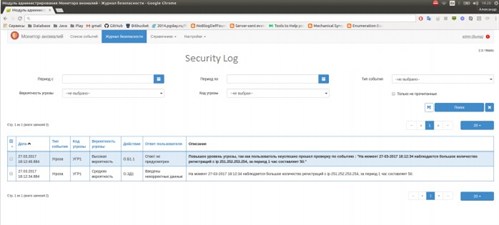Case Study: ML-based module to detect users’ fraudulent activity
WaveAccess developed an anti-fraud system to protect telecom companies from fraud attacks. The solution is based on Machine Learning and fuzzy logic algorithms. The security module recognizes suspicious actions as threats.

Telecommunication companies are constantly exposed to fraud attacks. There are attempts to gain access by using fake IP addresses, stolen credit card numbers, password matching and other attacks — it is impossible to guess what the fraudsters will come up with. The suspicious actions are easily confused with the actions of a simple user, e.g., with an input error or access from a new device. Therefore, the standard software protection tools become less effective and just downloading antivirus software doesn’t work — special tools are required to study user behavior and compare it with potential threats.
WaveAccess developed a machine learning based module that helps safely protect telecom companies — the system detects attacks in time, even if more than a million accounts are logging in. WaveAccess experts analyzed the most common threats, defining and formalizing 16 main threats types. For each of them an algorithm was developed that determines how a threat will be defined and dealt with. For some threats, a user’s feedback is requested, which determines the reaction to a threat.

The model of reactions to threats
To keep setup and monitoring processes simple, WaveAccess developed the submodule with UI. It monitors event logs and security logs and sets up the Anomaly Monitor’s subsystems.

WaveAccess implemented a number of load tests and integration tests to ensure that the protection module can easily handle a huge amount of input data. For Integration testing, the testing utility — scripts imitator — was developed. It simulates the load on the subsystem and helps to implement integral testing of the main module using templates. This approach saved time and resources that are normally spent on manual testing. It also allowed to add the testing into Continuous Integration.
WaveAccess creates similar machine learning based modules for “smart” recommendations in online stores; the same algorithms are used by the company's clients to calculate the probability of an insured event; to predict the probability of buying and other business tasks. These solutions can also be applied for protection by examining and detecting abnormal user behavior.
Find out more about the project in our case.
Let us tell you more about our projects!
Сontact us:
hello@wave-access.com















